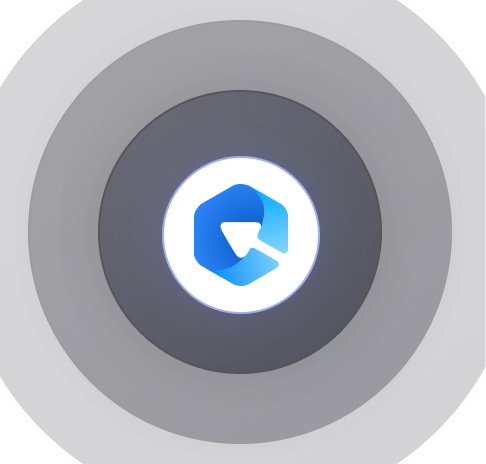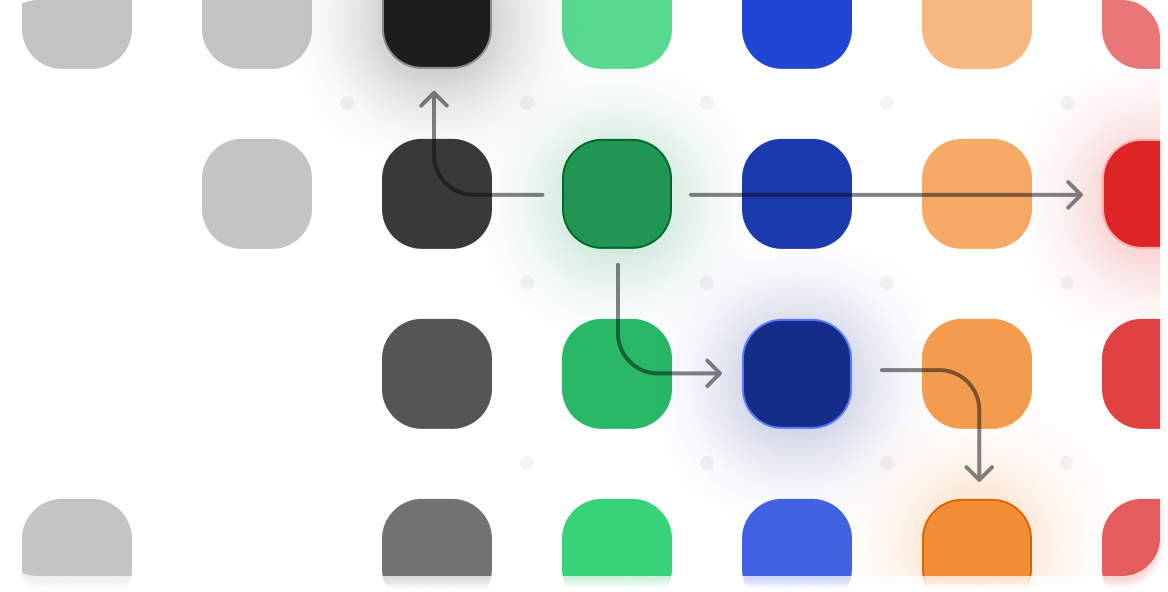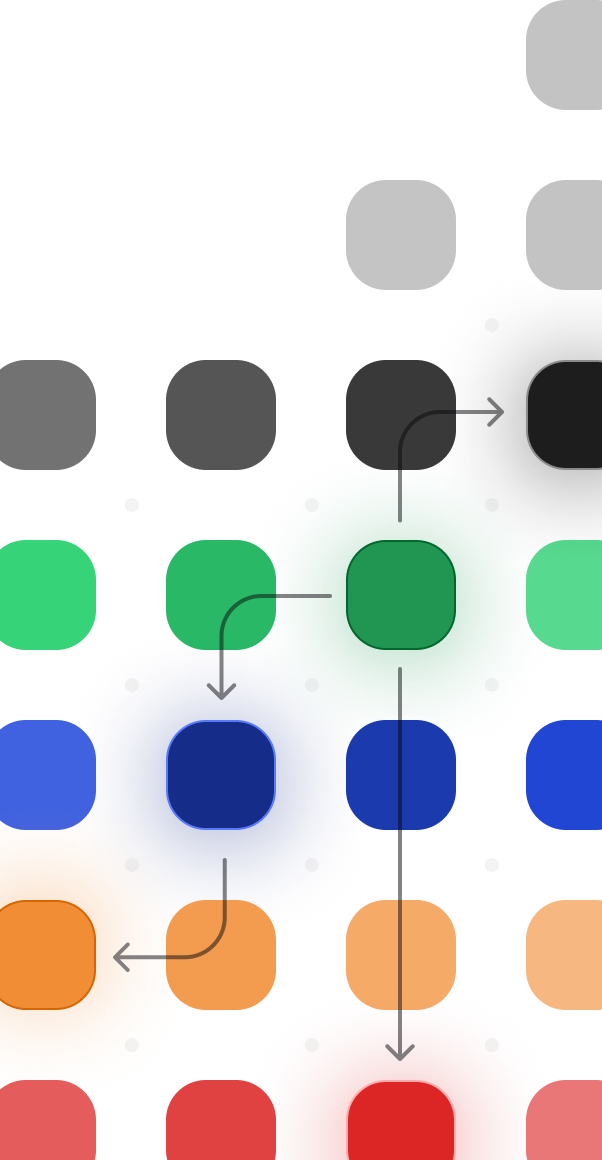
Cryptocurrency Trading Platform

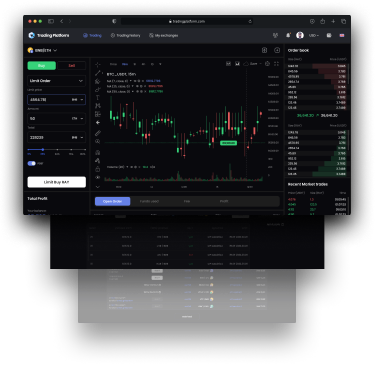
Earn on the difference in cryptocurrency rates using a simple, convenient and secure platform
All in one screen
That collects information from five exchanges. The Trading Platform system shows users the possible benefits they can get by placing orders (buy and sell) on different exchanges from one screen.
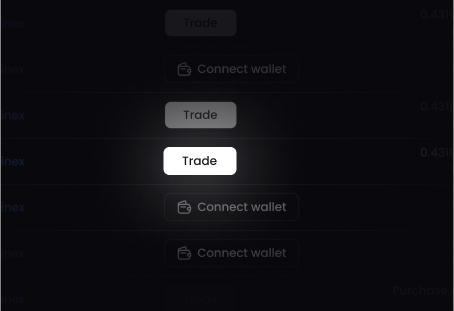
Connect
API to get started
To trade, users will need to connect their accounts with an API key to each exchange platform on which they have a registration. Further, the user will have the opportunity to make a profit at the touch of a button. Transactions will be carried out both manually and with the help of a special arbitrage bot.
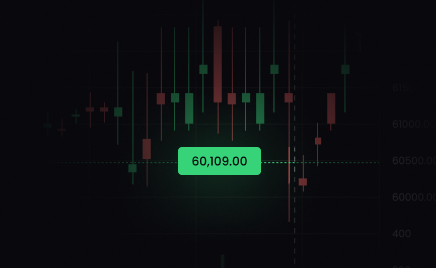
The ultimate goal of the Cryptocurrency Trading Platform and Arbitrage Bot is to maximize user profits by automatically trading cryptocurrencies on various exchanges. To achieve this goal, it is necessary to solve the following tasks:
User interface
Development of a convenient and intuitive interface for platform users, which will allow them to easily manage their accounts and control their trading operations
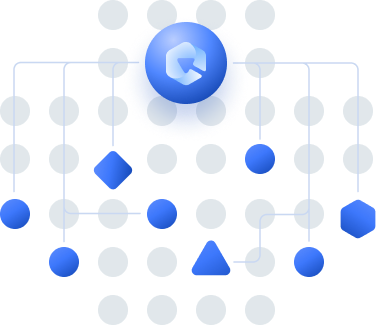
Development of a convenient and intuitive interface for platform users, which will allow them to easily manage their accounts and control their trading operations
strategy
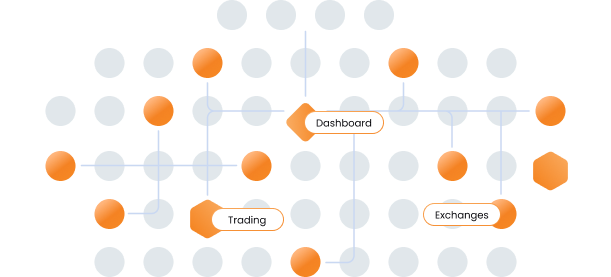
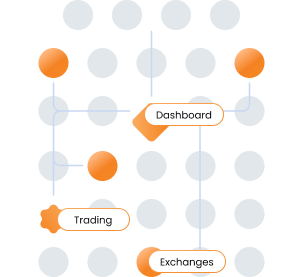
Development of arbitration algorithms
Creation of algorithms that can quickly determine the sources of the lowest and highest prices on different exchanges
Automatic transactions for the purchase and sale of cryptocurrencies on different exchanges to profit from arbitrage trading
Optimizing algorithms based on past trade data to improve future trading results
Integration with exchanges
Connecting to the API of
various cryptocurrency exchanges
Obtaining data on
cryptocurrency quotes and orders to buy and sell
Determination of possible trading pairs and positions for arbitrage trading
Development of a risk management system
Development of a risk management system to prevent large losses as a result of unsuccessful arbitrage deals
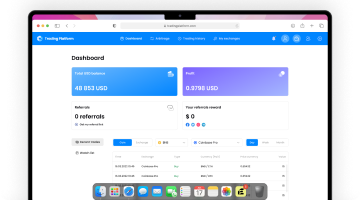
Monitoring of trading assets to identify possible risks and reduce positions if necessary

Developing strategies to reduce risks and optimize trading results
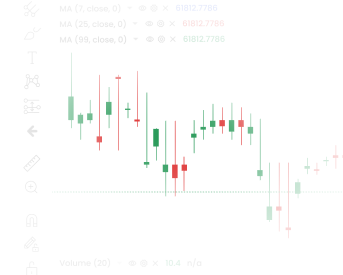
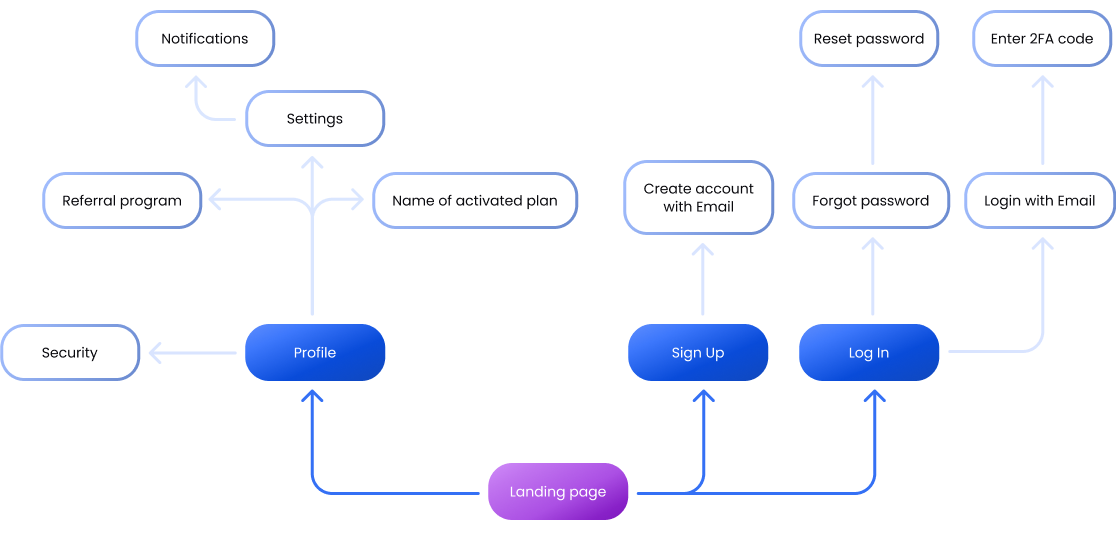
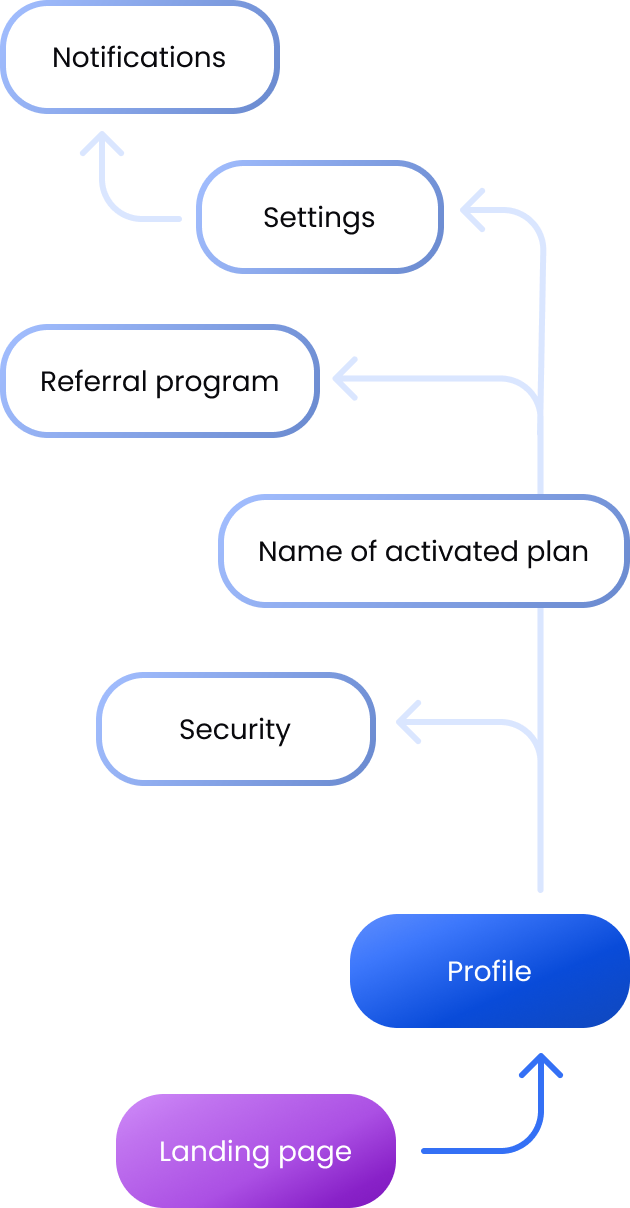
Creation of an intuitive bot management interface that allows you to set up trading parameters, manage positions and control results
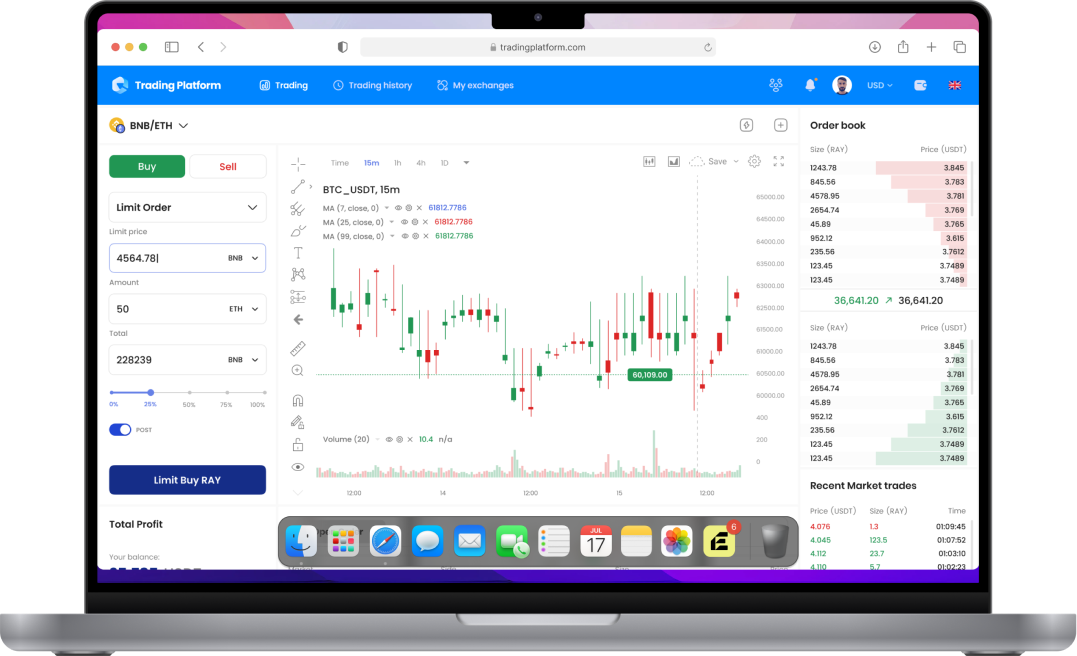
Providing statistics and reports on past trading activities so that users can analyze their results and optimize their trading strategies.
The development of a microservice architecture for a cryptocurrency Trading Platform and an arbitrage bot includes the following steps
Definition of functionality
Development of API specifications for each microservice
Writing the code for each microservice in
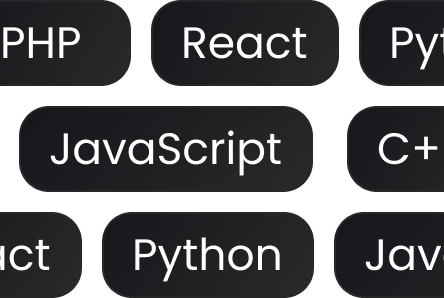
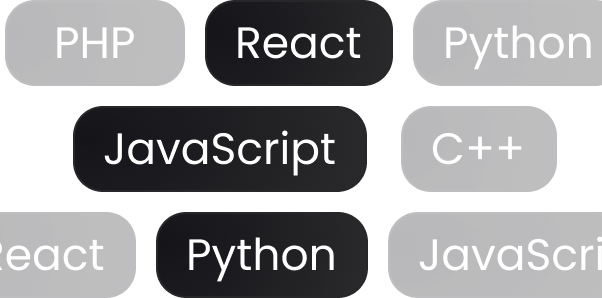
Testing each microservice
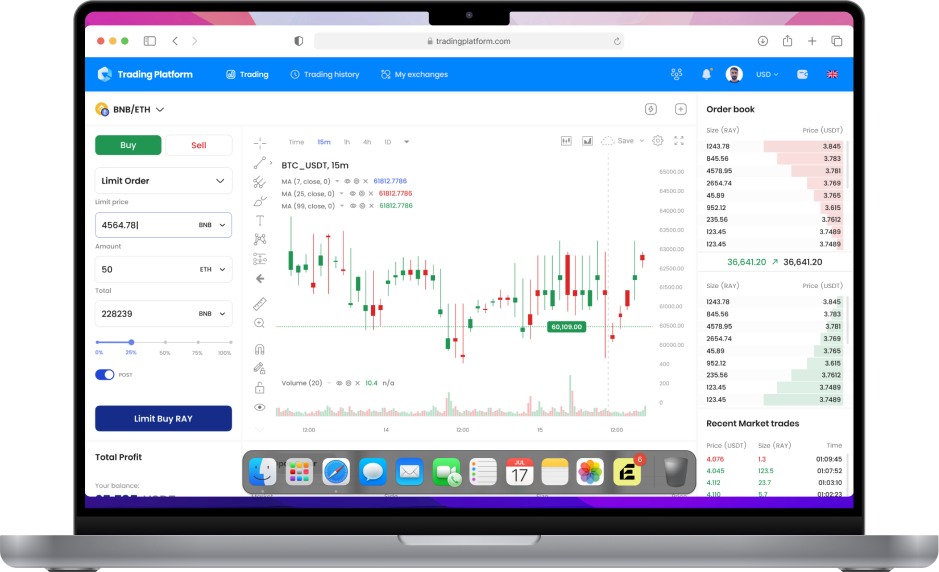
Determining how microservices interact with each other and with external systems
Creating Docker containers
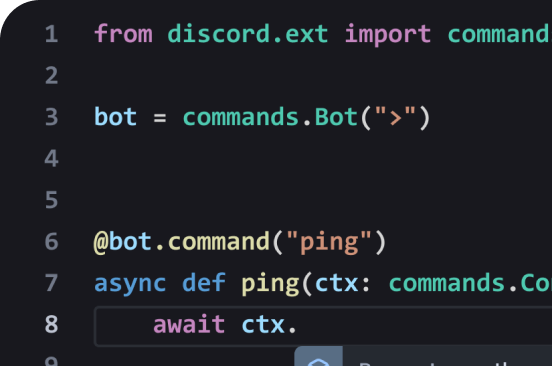
Deploying containers on servers in the cloud
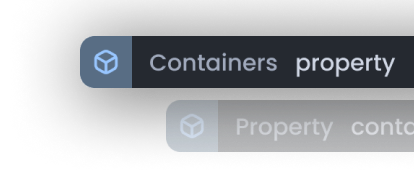
Monitoring and Debugging
Development of a monitoring system to track the state of each microservice and their interaction
Setting up tools for logging and debugging
Development of a problem alert system
Configuration and management
Setting up each microservice with configuration files
Manage platform startup, shutdown, and scale with container orchestration tools
Protection and security
Development of an authentication and authorization system
Setting up security monitoring and attack prevention tools
Application design
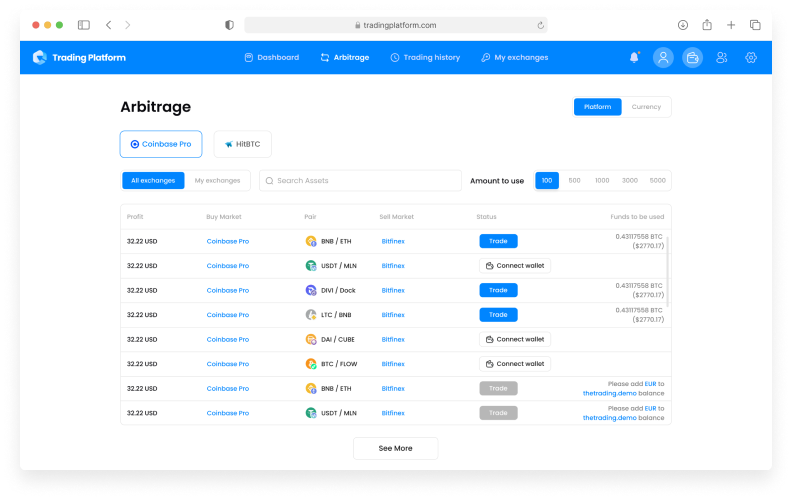
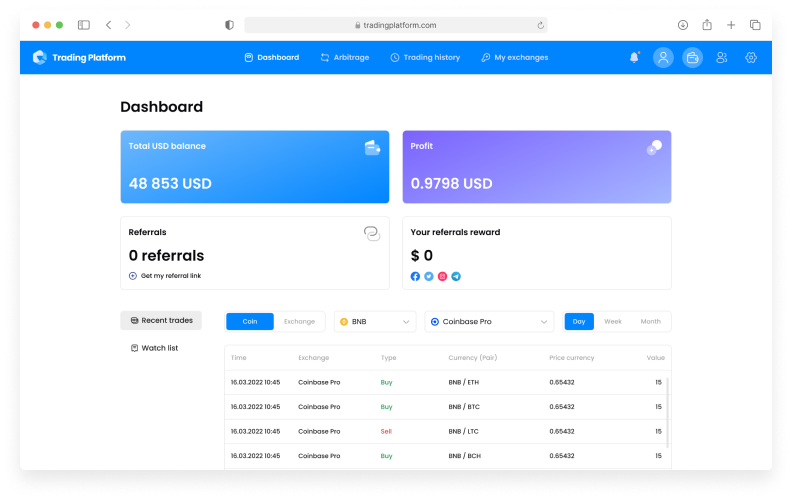
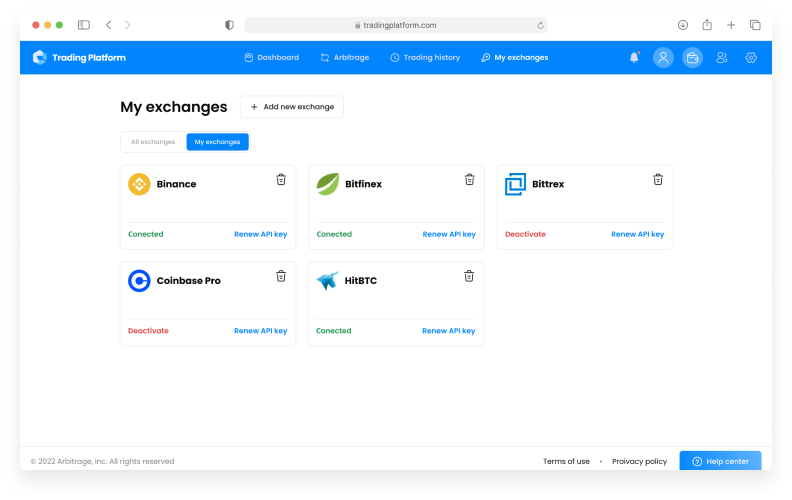
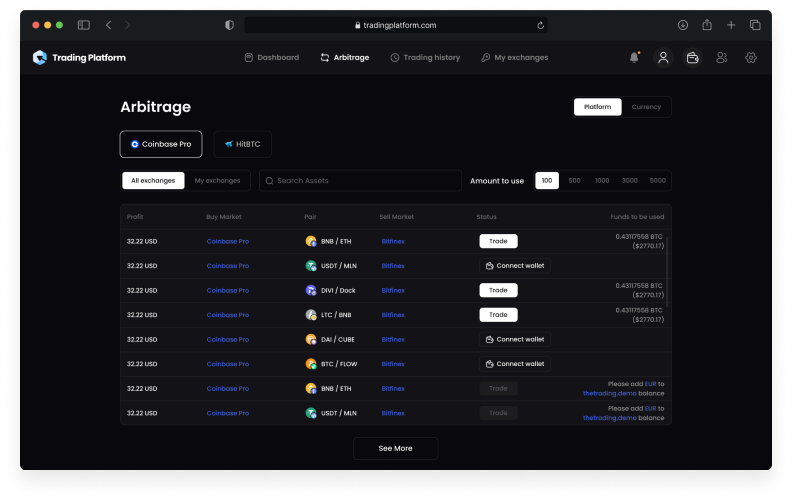
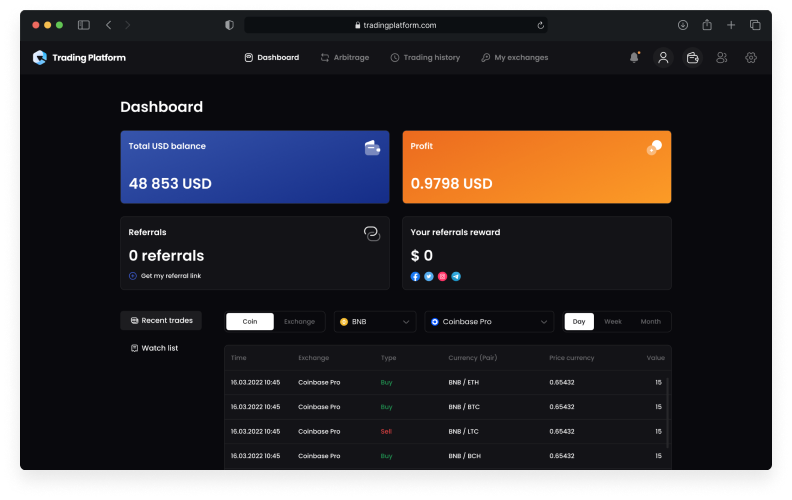
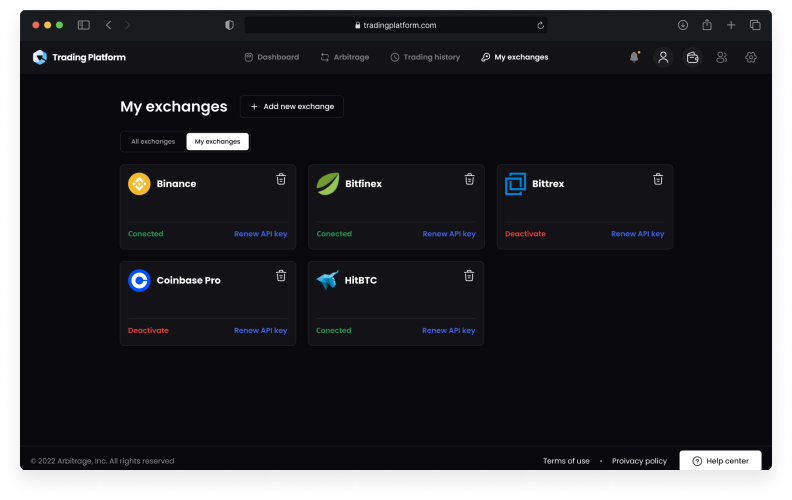
User and market research
Studying the needs and habits of users who will use the platform
Analysis of competitors and their design
Determining the key features that users expect from the platform
Deploying containers on servers in the cloud
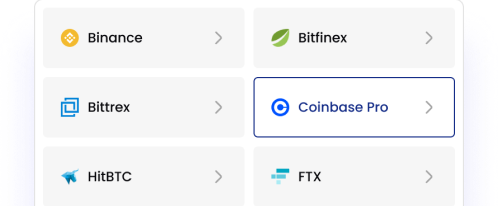
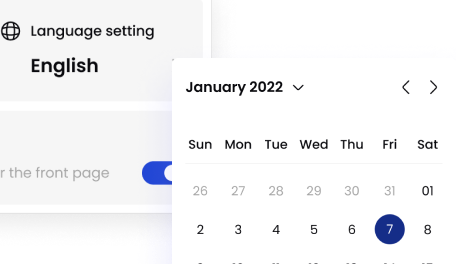
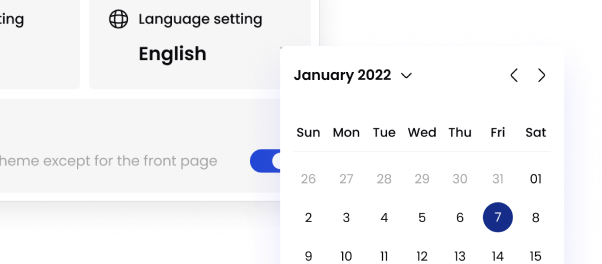
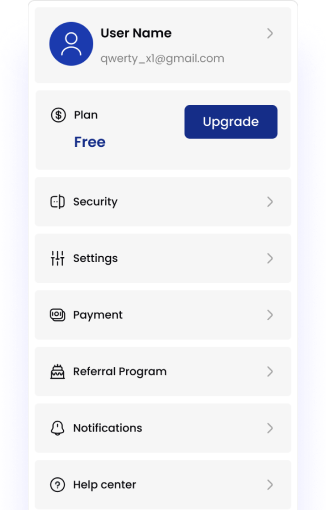
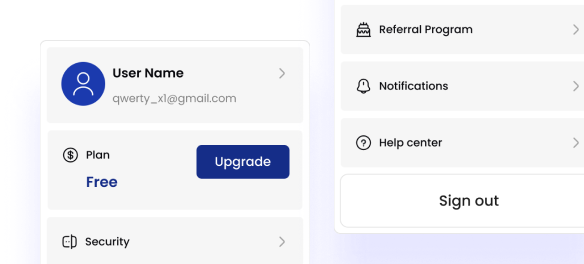
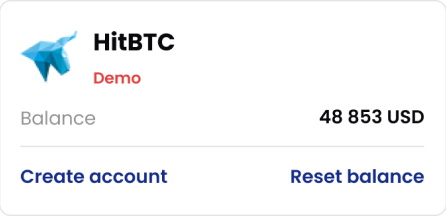

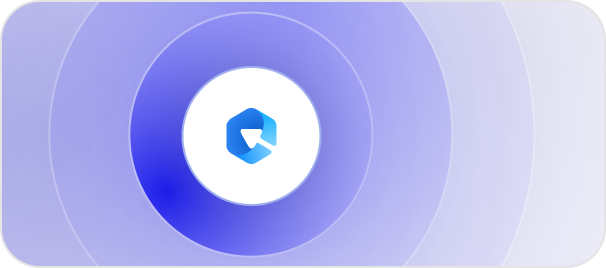

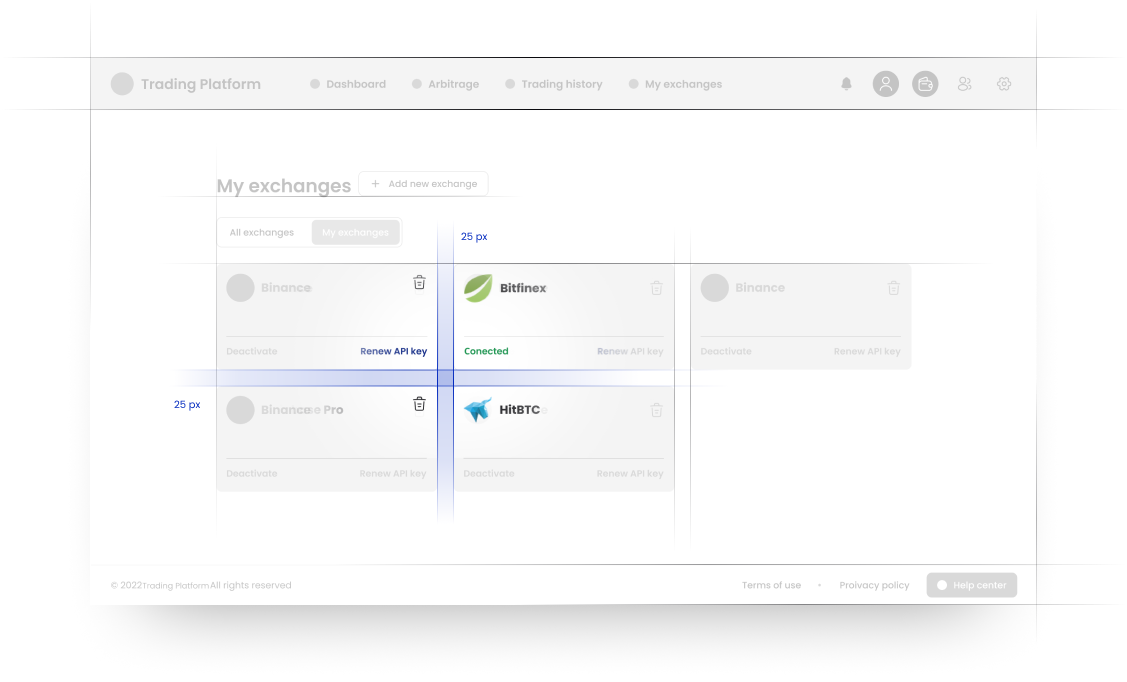
Application design
Creation of page layouts and screens of the platform, taking into account the design concept and functional requirements
Design user interfaces (UI) and user interactions (UX) that make the platform easy to use and understand
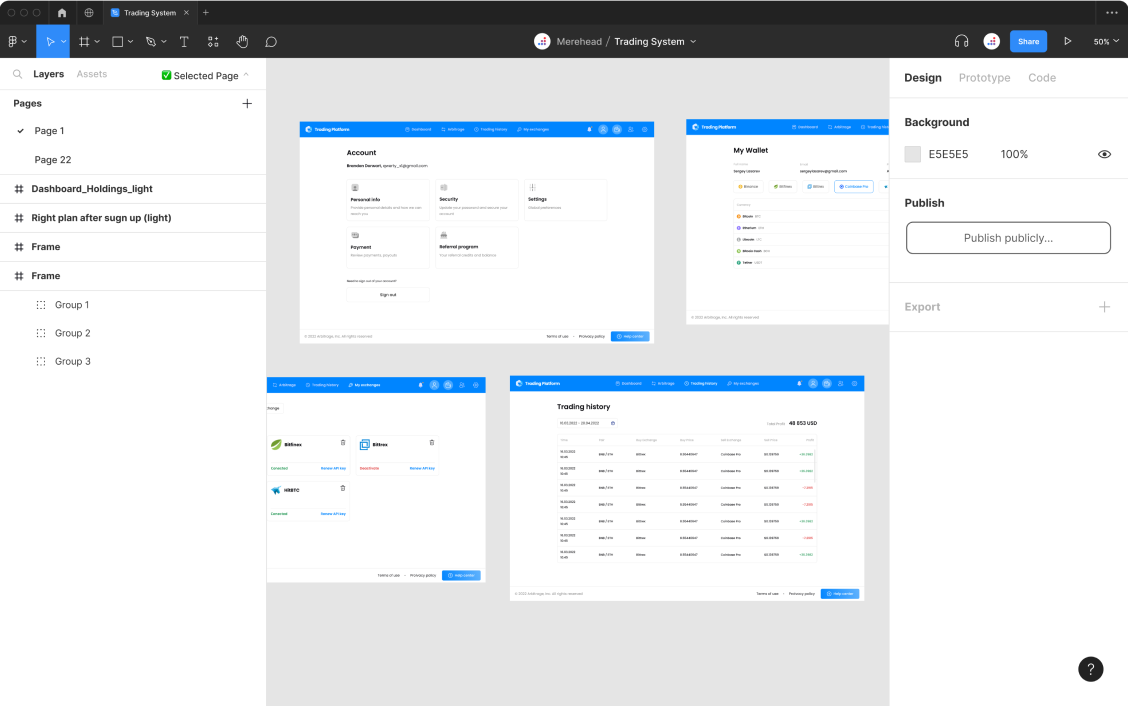
Prototyping
Create interactive platform prototypes that allow users to interact with page and screen layouts
Prototype testing by testers and focus group
Design refinement and optimization
Correction of errors and shortcomings in the design based on feedback from users and testing.
Design optimization for different devices and screens (desktop, tablet, mobile phone)
Styling and branding development
Development and implementation of styles for design elements that will be reused on different pages of the platform.
Development of branding that will be used on the website and in other materials of the company.
Design Documentation
Creation of documentation describing design principles, use of elements and styles, color palette, fonts and icons.
Providing documentation to developers who will implement the design on the site.

